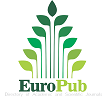Artificial Intelligence
: new subject of law? Biolegal implications and reflections on the role of this tool within the formation of legal relationships.
Abstract
Today, we live in an era where the participation of Artificial Intelligence is already part of our daily lives. Its increasing use compels the legal framework to question the role of such technologies within the legal order. In this context, there is doctrinal uncertainty about whether, due to the autonomy with which it seems to operate, AI should be considered a new type of legal subject. This would imply that AI could exercise various types of subjective legal situations, becoming a decisive part of community life. Ultimately, it is concluded that, despite its novel functions, AI cannot be equated with the condition of a person, which is the foundation of the idea of a legal subject, due to its inability to have feelings or generate private judgments of autonomy, as well as its incapacity to assess its own behavior.
Downloads
References
Alexy, R. & García, A. (2007). Star Trek y los derechos humanos. Tirant Lo Blanch.
Amunátegui, C. F. (2020). Arcana Technicae. El derecho y la inteligencia artificial. Tirant Lo Blanch.
BBC News (16 de mayo del 2023). ChatGPT | "Mi peor temor es que causemos un daño significativo al mundo": el testimonio de Sam Altman, creador del chatbot de IA, ante el Congreso de EE.UU. https://goo.su/oneNX
BBVA (2022). La inteligencia artificial detrás de Blue, el asistente virtual de BBVA. https://goo.su/yDTkam
Cervilla, J. (2024). Sentencia emblemática: el río Marañón es declarado titular de derecho. https://goo.su/QjwbIm
Espinoza, J. (2008). Derecho de las personas. Editorial Rhodas.
Fernández, C. (2009). Derecho de las personas. Editorial Grijley.
Gálvez, P. K. (2021). Introducción a la inteligencia artificial y la ética: Vehículos autónomos como caso de estudio. Revista Peruana de Derecho de Empresa, (74), 41-53. https://goo.su/a1UnOx
Hervada, J. (2011). Introducción Crítica al Derecho Natural. (11 ed.). Ediciones Universidad de Navarra.
Infobae (14 de agosto del 2021). Inteligencia Artificial: cómo se aplica a la tecnología de los automóviles. https://goo.su/pCJma
Limón, R. (18 de mayo del 2024). La nueva inteligencia artificial cava la tumba de los buscadores y asistentes tradicionales. Diario El País. https://goo.su/x2PRDN
Lobato, A. (2000). La persona en Santo Tomás de Aquino. https://goo.su/sUYF1Wa
LP Pasión por el Derecho (28 de marzo del 2023). URGENTE: Se dicta la primera sentencia en Perú con asistencia de inteligencia artificial (OpenAI-ChatGPT) [Exp. 00052-2022-18-3002-JP-FC-01]. https://goo.su/fPvgDvY
Morales-Hervias, R. (2008). Situaciones jurídicas subjetivas. Advocatus, (019), 323-360. https://doi.org/10.26439/advocatus2008.n019.478
Nakama-Hokamura, G. K. & Rojas-Valdez, K. (2023). Naturaleza y persona humana: bases críticas de la pretensión transhumanista. Apuntes De Bioética, 6(2), 5-29. https://doi.org/10.35383/apuntes.v6i2.981
OpenAI. (2024). ChatGPT (modelo GPT-4) [Modelo de lenguaje]. https://goo.su/Vmxl5k1
Ormeño, M. (2006). El uso fraudulento de la persona jurídica. En Universidad de Lima (Ed.), Libro homenaje Facultad de Derecho. Fondo Editorial Universidad de Lima. 261-294.
Roppo, V. (2007). Istituzioni di diritto privato (L. León, Trad.). Derecho de las Relaciones Obligatorias. Lecturas seleccionadas y traducidas para uso de los estudiantes universitarios. Jurista Editores (Trabajo original publicado en el 2001).
Rubio, M. (2020). El sistema jurídico. Introducción al Derecho (12a ed.). Fondo Editorial de la Pontificia Universidad Católica del Perú.
Sánchez, R. J. (2019). Estatuto jurídico del embrión humano. Apuntes De Bioética, 2(2), 69-79. https://doi.org/10.35383/apuntes.v2i2.288
Zatti, P. (2005). “Las situaciones jurídicas”. En Revista jurídica del Perú, LV(64), 357-389.
Copyright (c) 2024 Aldo Alesandro Santome Sánchez (Autor/a)

This work is licensed under a Creative Commons Attribution 4.0 International License.
The authors retain copyright.
This work is under international license Creative Commons Attribution 4.0.
The articles published by the scientific journal "Notes on Bioethics" of the Universidad Catolica Santo Toribio de Mogrovejo, Chiclayo Peru, can be shared through the international public license Creative Commons Attribution CC BY 4.0
























 LIBRARY USAT
LIBRARY USAT